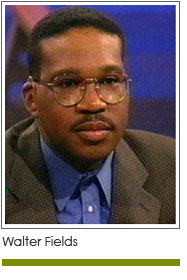 For some time now the glow that accompanied anything branded “American,” has lost its luster in the world community. While our nation has always had detractors, and even some bona fide enemies, the contempt for our country was never so popularly shared as to make the United States and its citizenry pariahs. Global sentiment toward our nation changed dramatically during the eight years of the Bush administration, with no clearer example than the terrorist attacks of September 11, 2001. While those responsible for those heinous acts needed little provocation, it became clear that in some parts of the world the perception of our nation had taken a dramatic turn for the worse. Making matters worse was our invasion of Iraq and the resulting chaos that ensued.
For some time now the glow that accompanied anything branded “American,” has lost its luster in the world community. While our nation has always had detractors, and even some bona fide enemies, the contempt for our country was never so popularly shared as to make the United States and its citizenry pariahs. Global sentiment toward our nation changed dramatically during the eight years of the Bush administration, with no clearer example than the terrorist attacks of September 11, 2001. While those responsible for those heinous acts needed little provocation, it became clear that in some parts of the world the perception of our nation had taken a dramatic turn for the worse. Making matters worse was our invasion of Iraq and the resulting chaos that ensued.
The presidential election of November 2008 provided the nation with a fresh start in the international arena. Still, doubts persisted overseas as to whether the choice of Barack Obama as President would truly signal a change in direction for the United States with its allies and adversaries. Complicating matters is the global recession that has many nations now pointing their fingers at the United States, blaming the nation for failing to come to terms with its troubled economy. It is why President Obama’s trip to the G20 carried such significance.
In many ways Mr. Obama’s travel overseas, while important for the purposes of coalescing with world leaders to begin creating a roadmap for economic recovery, was probably more important as a means to repair the nation’s “brand.” In this President, the nation has the best of what “Made in America” has to offer. He truly represents the embodiment of the nation’s struggles to put in practice the lofty ideas put to paper by the men who sat in Philadelphia. For the rest of the world, Barack Obama is the answer to an age-old question regarding our nation’s true nature and our ability to transcend a past that violated the very principles upon which we stand.
He is in many ways the “new Coke,” without the bitter aftertaste. While there were, and still are, questions, and rightly so, in the international community regarding our nation’s policy posture, Mr. Obama represents a dramatic departure from the status quo that has been our projection to the world. If nothing else, Barack Obama has renewed hope around the world that the American brand might recapture some of its old magic. There is, however, a more powerful and compelling benefit to having Mr. Obama in the White House. He is an antidote to the negative perception that many foreigners continue to have of American Blacks and will go a long way toward dispelling myths that have taken on the appearance of truth.
When Mr. Obama walked down the staircase of Air Force One, and set foot on foreign soil as the President of the United States, he, and First Lady Michele Obama, presented a new conception of “Black” to the world. While other nations have long been familiar with Blacks in the arts and professional sports, few overseas imagined a day when the ultimate power of the United States would be vested in a Black American. Race and racism has always been our Achilles heel, our soft spot that gave nations, including bad actors, room to criticize the United States and throw the “hypocrite” label our way. It is what gave Soviet communism a back door into the Black community during the Red Scare.
The presence of Barack Obama as our President among world leaders will begin to chip away at the popular imagery of Black Americans fueled by media and paints a one-dimensional picture of Black life. By simply having, Mr. Obama announced as “President of the United States” on a world stage forces foreigners to reevaluate some of the biases they hold toward Blacks in the states. The President’s continued service will undoubtedly provide the ancillary benefit of strengthening our hand at the bargaining table among world nations while elevating Blackness as an intellectual and moral equivalent of whiteness.
Walter Fields's Profile | Create Your Badge http://www.linkedin.com/in/walterfields
Skype: walter.fields
http://www.linkedin.com/in/walterfields
Skype: walter.fields












